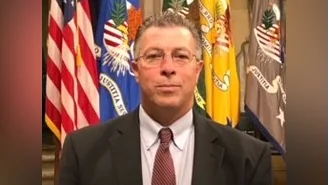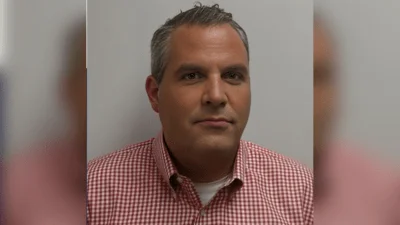The Congressional Record is a unique source of public documentation. It started in 1873, documenting nearly all the major and minor policies being discussed and debated.
“False Claims Act (Executive Session)” mentioning Chuck Grassley was published in the Senate section on pages S1666-S1667 on March 22.
Of the 100 senators in 117th Congress, 24 percent were women, and 76 percent were men, according to the Biographical Directory of the United States Congress.
Senators' salaries are historically higher than the median US income.
The publication is reproduced in full below:
False Claims Act
Mr. GRASSLEY. A Civil War legislation called the False Claims Act has been on the books since that period of time. In 1986, I believe it was, I got some amendments to it that made it a much more valuable piece of legislation than it was before that time.
It is called the False Claims Act, and it has brought, I think, something like $64 billion back into the Federal Treasury of fraudulently taken money since then.
The problem today, even though it has been a successful law, is that the courts tend, from time to time, to neuter its capabilities by interpreting it in a way so it is not quite as effective. From time to time, we have passed legislation to overcome some of those court decisions.
I am here today to talk about another opportunity this Senate has to make the False Claims Act the effective piece of legislation it was.
So I want to alert my colleagues about the most recent limitations the courts have imposed on the False Claims Act.
The False Claims Act was signed into law by President Abraham Lincoln in 1863, for the very same purpose it serves today: to fight fraud, not just with military matters, as was the reason for doing it because the Union Army was being defrauded at that particular time, but, today, it fights fraud governmentwide.
Today, it is the government's most powerful anti-fraud statute. That is because amendments that I offered in 1986 empowered whistleblowers to sue fraudsters on the government's behalf with or without the government's help. Since then, we have recovered more than $64 billion of taxpayer money lost to fraud.
Now, when we talk about anti-fraud statutes like the False Claims Act, we use the term ``materiality.'' It is because of that term that the courts have caused--their interpretation of that term has caused--
the act to be less effective. The False Claims Act defines
``materiality'' as ``having a natural tendency of influencing the payment or receipt of money or property.'' Basically, if the government could have withheld payment, then it was likely material.
However, based on a 2016 Supreme Court opinion, the Federal courts are trying to reshape the act's materiality requirement. In the Supreme Court's opinion in Escobar, ``if the Government pays a particular claim in full despite its actual knowledge that certain requirements were violated, that is very strong evidence that those requirements are not material.''
Citing this language, other courts have made the government's payment decisions in these cases a deciding factor. Consequently, the Justice Department now shies away from prosecuting these cases. That is the case even when the fraud is very obvious and then, obviously, material.
Recently, the Office of the Special Inspector General for Afghan Reconstruction briefed me on a report about a botched Defense Department effort to quickly buy cargo planes from an Italian manufacturer called Alenia.
In 2009, the Department of Defense bought 20 cargo planes from this company, Alenia, for $549 million. These planes were intended to move goods and train Afghan pilots. This is the type of plane we are talking about. The contract required the manufacturers to refurbish 20 retired aircraft and provide enough spare parts for 10 years of maintenance. To seal the deal, the company even took Department of Defense personnel on several warehouse tours to prove they had all these spare parts.
When the planes arrived in Afghanistan, mechanics quickly noted the planes were very poorly refurbished. Worse, they couldn't actually fly. The poor state of the planes and the hazards of the Afghan elements made that impossible. The company, Alenia, also lied about their maintenance commitments.
Now, remember, I already told you about their promise that those warehouses were full of parts for the next 10 years. These spare parts that they showed them were not for these planes. In other words, they were for the wrong planes.
Despite this blatant fraud, the Department of Defense inspectors kept certifying the planes, and the government kept making payments.
But here is the catch: The inspectors later admitted that many of the documents and manuals they reviewed were in Italian, and none of them spoke Italian.
In the final count, out of 20 aircraft, 4 never even made it to Afghanistan.
It is unclear why the Department of Defense continued making payments despite these flagrant violations, but by 2013, it became clear that continuing this program was unfeasible, and the government tried to sell the remaining 16 planes. You can imagine that nobody wanted these planes. So the Obama-Biden administration sold them all for scrap metal. You can see the scrap metal right here.
To recap, the government bought 20 airplanes for $549 million and, in less than 5 years, sold them for $40,257 worth of scrap metal. The photos next to me show what we bought compared to what it was actually worth, a little pile of garbage.
It is clear that the actual condition of the planes and the lack of parts were very material components of this contract. See, there is that word ``material.''
Now, thanks to the Department of Defense's poor judgment and also the courts' new standard on materiality, the Justice Department won't bring False Claims Act charges against that company.
Materiality is important to protect against parasitic lawsuits, but we can't allow defendants to get away with scalping the taxpayers because some government bureaucrats failed to do their jobs.
Government bureaucrats are highly segmented and often unable to make key decisions for their organizations. Now, that is not the employee's fault. That is just kind of the way government, I am sorry to say, operates.
Also, the government typically stops payments only when it has fully investigated and corroborated a claim of fraud.
In my many years of investigating the Department of Defense, it has taught me that a Pentagon bureaucrat is rarely motivated to recognize fraud. That is because the money doesn't come out of their pocket. This example highlights how the courts' narrow interpretation of
``materiality'' fails to take into account how the government really works and why we need to overcome the courts' decision on the definition of ``materiality.''
When the False Claims Act was originally passed, one fraudster boasted--and this is a direct quote--``You can sell anything to the government at almost any price if you've got the guts to ask.''
Unfortunately, that was true in this case as well. I have already made it public that I am working to patch this hole in the taxpayer's pocket. This example perfectly illustrates the need for change. I am working on introducing legislation to address the issue, and I am in the final stages of negotiating and look forward to putting forward a very bipartisan bill in the coming weeks.
I suggest the absence of a quorum.
The PRESIDING OFFICER. The clerk will call the roll.
The senior assistant legislative clerk proceeded to call the roll.
Mr. CORNYN. Mr. President, I ask unanimous consent that the order for the quorum call be rescinded.
The PRESIDING OFFICER. Without objection, it is so ordered.





 Alerts Sign-up
Alerts Sign-up